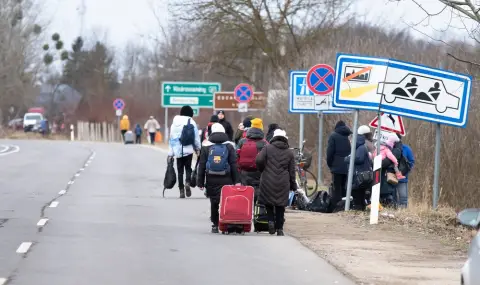The number of migrants entering the European Union illegally decreased by 38% in 2024, reports "Reuters", citing data from the EU border agency "Frontex". This is the lowest level since 2021, reports News.bg.
Despite the overall decline, the number of migrants crossing the borders with Belarus and Russia increased by 192% and reached 17,000 people. The majority of these migrants come from Syria, Afghanistan, Egypt and African countries, and the routes to the EU have changed.
Illegal migration is a central theme in European politics, with many far-right and populist parties using the issue of migration in their campaigns, including in Germany for the upcoming elections.
According to "Frontex", the reduction in illegal border crossings - which in 2024 will be just over 239,000 - is due to increased cooperation between the EU and partners in the fight against smuggling networks. This is the lowest level since 2021, when migration was heavily impacted by the COVID-19 pandemic.
The decrease in irregular migration is explained by a sharp 59% drop along the Central Mediterranean route, mainly due to fewer departures from Tunisia and Libya, and a 78% drop in migration along the Western Balkans, thanks to efforts by countries in the region to stem the flow.
However, illegal border crossing attempts increased by 14% on the Eastern Mediterranean route, with new corridors from Eastern Libya being popularized by migrants mainly from Syria, Afghanistan and Egypt. The number of migrants crossing the West African route has also increased by 18% in the past year, with more than 47,000 people reaching the Canary Islands.
“While we see a significant reduction in irregular border crossings in 2024, this does not exclude new emerging risks and changes in migration dynamics,“ commented the head of "Frontex" Hans Leytens.
